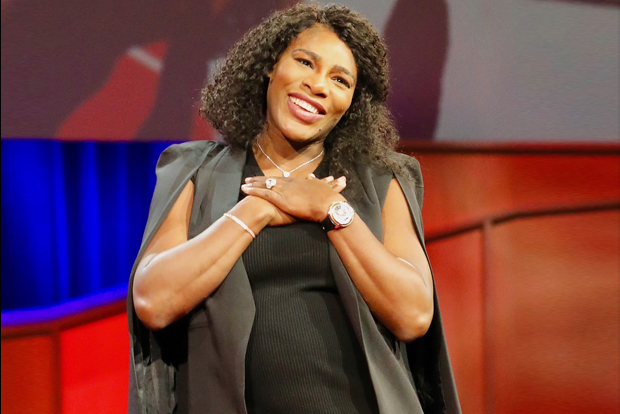
By Nancy Armour
Serena Williams is being punished for having a baby.
That’s the only way to see the decision not to give her a seed for the French Open, her first major tournament since giving birth to daughter Olympia in September. French Tennis Federation officials told The Associated Press on Monday that they would award seeds based on rankings and, because Williams is currently No. 453, well, she’s out of luck.
That logic might be understandable had Williams spent the last 16 months on sabbatical, focusing on some other endeavor. But she didn’t. She had a baby, a physically grueling experience made even more so by complications that left her bedridden for six weeks.
To not recognize that that should warrant an exception, be it for Williams or any new mother, is both outdated and mean-spirited. Not to mention short-sighted on the part of French Open officials, who risk seeing one of the world’s most popular athletes make an early exit from her first major since she had her daughter because she’ll face top competition right away.
But the larger, inexcusable point is the discriminatory way in which motherhood is viewed by both tournament organizers and the WTA. The idea that players should have to choose between having a family and having a career is as antiquated as wooden rackets.
WTA rules grant players returning from injuries and maternity leave a “special ranking,” which preserves entry into tournaments but not seeding. Players have previously not favored using special rankings for seedings, the WTA told the AP, though it didn’t say why.
Perhaps it’s because it was so rarely an issue. Tennis has been, particularly in the past few decades, a young woman’s sport, with players putting motherhood on hold until their careers are finished.
But that’s changing.
Kim Clijsters won three of her four majors after having her first child. Victoria Azarenka, who won two majors and was the year-end No. 1 in 2012, returned to the tour this month after a messy custody battle over her 1½-year-old son, Leo. Sania Mirza, a three-time Grand Slam champion in doubles, has already said she plans to return after having her baby, due in October.
You would think if any sports federation would understand why pregnancy should not be treated as either a handicap or a hindrance, it would be one with Women in its name.
“The rule is currently under further review as part of our 2019 rules process,” the WTA said in its statement to the AP.
Just because the WTA is stuck in the 1950s doesn’t mean the French Open has to be. (Take note, Wimbledon and U.S. Open. You’re up next.) It could still have given Williams a seed, and there would have been little argument if it had done so.
Three of Williams’ 23 Grand Slam titles came at Roland Garros. She was ranked No. 1 when she went on maternity leave, having just won the Australian Open.
Even her fellow competitors are in favor of her being seeded.
“It’s such an incredible effort for a woman to come back from physically, emotionally,” Maria Sharapova said at last week’s Italian Open.
“So, yeah, I definitely think that would be a nice change.”
If even Sharapova, whose relationship with Williams is famously frosty, says that, it’s a pretty good indication that French Open and WTA officials are doing it wrong.
Pregnancy and motherhood is already the toughest thing Serena Williams has faced. There’s no need for the French Open to pile on.
This article was republished with permission from the original author and 2015 Ronald Reagan Media Award recipient, Nancy Armour, and the original publisher, USA Today. Follow columnist Nancy Armour on Twitter @nrarmour.
Serena Williams is great player, but mostly wins from her physics. Definitely she is quite stronger then most of the other opponents and have more stamina. I like her gameplay, but definitely is not the player I would support.